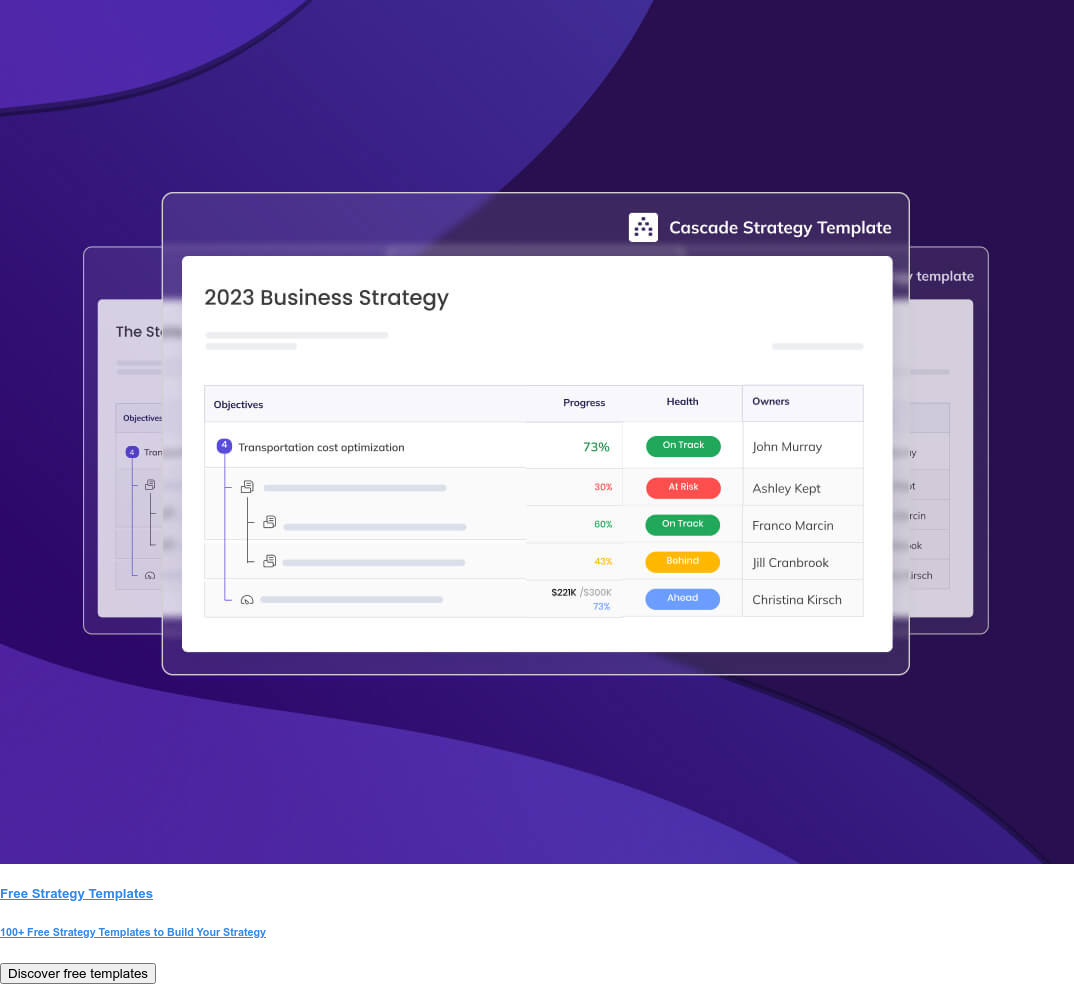An overview of business transparency
Transparent businesses have a bias towards their people. They value them more than they value their numbers. So they take care of them and in return, their people take care of the numbers. That’s how companies succeed in the long term.
In this article, after we define transparency in business, we’ll discuss why it’s so important to develop it. Here is a quick overview:
- It creates trust
- It creates loyalty
- It increases your people’s accountability
- It makes reporting straightforward
- It allows for a clearer overview
- It increases the company’s adaptability
What is transparency in business
We define transparency in business as the practice of sharing information amongst people on important matters internally and externally. It’s the process of having active and effective communication channels across the business’s various stakeholders.
What is the opposite of transparent in business
A business that doesn’t value transparency develops a covert culture.
Leadership is responsible for fostering a transparent culture. However, complacency could play a role. If a company can’t get past a “this is how we’ve always done it” mentality, it could end up with a covert culture.
As a result, operations become rigid and process improvement halts.

Why is transparency important in business?
1. Because it creates trust
Teams that trust each other perform better.
A recent meta-analysis that processed data from 55 independent studies found that the higher the trust between team members, the better they perform.
Every team member has a clear understanding of the decisions and actions they own. Thus, people feel less stressed and trust each other, share information more openly, and ask for help whenever they encounter obstacles.
People cooperate with less friction and have quick access to relevant information.
This works with customers as well. Transparent businesses come out as ethical because, in the eyes of their audience, they “have nothing to hide”.
Take, for example, Patagonia “Don’t buy this jacket” ad. The company highlighted everything that was wrong with its process of making the jacket. How big its environmental footprint actually is.
People not only bought the jacket but became part of Patagonia’s loyal customer base that trusts the brand to improve its processes and decrease its environmental footprint.
2. Because it creates loyalty
The workforce today demands a transparent workplace.
People need to know that the work they do matters. They want to trace their project back to the company’s vision. They want to feel they contribute. Blindly following instructions without any sense of belonging to a greater cause leaves people unsatisfied.
And unsatisfied employees disengage with their work.
And then they leave. A 2020 study has shown that highly engaged business units and teams enjoy up to 81% higher loyalty than companies with lower employee engagement. Actually, the former performed better on every meaningful metric of the study.
Not only will you improve employee retention if you become a transparent business, but you’ll also attract top-level talent.
3. Because it increases your people’s accountability
Accountability and transparency reinforce each other.
Revealing people’s goals and incentives forces them to stay accountable. Nobody wants to show up behind on their goals.
Taking responsibility for the wins and losses forces people over time to reveal their obstacles, blockers, and mistakes so they can get help and get past them.
Instead of allowing externalities to impede progress, people take full ownership of their goals and objectives.
4. Because it makes reporting straightforward
Fully transparent processes and individual goals facilitate reporting.
When people don’t hide their personal goals, they can standardize and sometimes automate their reports. It’s easier to create clear and concise KPI reporting templates when you’re not worried about disclosing important information about your work.
Reviewing meetings with standardized reporting tend to be shorter and more on point. Progress or lack thereof is clearly displayed and adjustments happen early to ensure the timely completion of projects.
5. Because it allows for a clearer overview
Transparency works both ways.
Similar to how employees need more context to their decisions and actions, leadership needs a better overview of the company’s strategy. Transparent reporting habits make it easier to track the company’s direction.
We’ve even heard about a company where the C-level leadership was working in a silo and didn’t provide a clear strategy where everyone could align with while the board could follow its progress.
6. Because it increases the company’s adaptability
Collecting data nowadays isn’t hard. Analyzing and acting on them is the real challenge. Companies that share internally relevant information can adapt faster to changes in the market.
Transparent companies have strong bottom-up communication channels. For example, they quickly get important information about competitors up the chain of command.
At the same time, people second-guess decisions much less because they understand their context and trust the decision-making process. They feel heard and that their voice matters.
Are you looking for ways to develop transparency in your business? Book a demo with us to learn how Cascade can help you overcome information barriers and connect your people.





.png)
.png)
.png)
.png)



